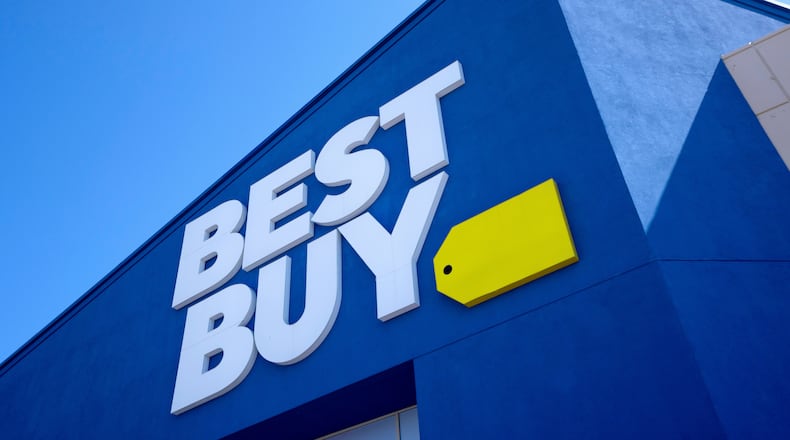Shares rose nearly 6% in early afternoon trading.
Best Buy's CEO Corie Barry told reporters on a call Tuesday that the chain is making sure that it has a broad range of products across all price points. That breadth of assortment has helped the chain pick up more lower income shoppers, she said.
“The consumer is not a monolith,” Barry told reporters. “Generally, what we are seeing remains a generally resilient consumer. They are deal focused, so definitely looking for those predictable sales events."
But Barry said that doesn't mean shoppers are looking for the lowest prices but rather ones that offer the best value.
“And they’re willing to spend when they need to or when there’s innovation,” she said.
The strong quarter is an encouraging sign for Best Buy, which like almost all U.S. companies, has spent months navigating an uncertain economic environment as President Donald Trump imposes wide-ranging tariffs on imports. The electronics industry can be particularly hard hit by tariffs because so many good are imported.
Consumer sentiment has sagged and the just ended 43-day federal shutdown did not help.
Shoppers seemingly continue to spend, though there are broad signs that they have grown more cautious and often are lured only by discounts.
Inflation is still stubborn, yet the consumer impact is not as bad as originally feared because Best Buy and other retailers have absorbed some of those increases. They have also diversified supply networks to dodge tariffs. And so price increases have only been applied to a small amount of products, Best Buy executives said.
Barry told reporters that many shoppers are buying gadgets like computers to replace their older ones, or they're looking for innovative products like getting their hands on new gaming consoles.
Barry estimates that the top 40% of all U.S. consumers are driving two-thirds of all consumption, but while the remaining 60% of U.S. consumers are spending less freely, it's not “dire" because the job market has held up. This group is focusing on need or getting the best deals, she said.
“One of the things we’re watching closely is how does employment continue to evolve for particularly that cohort of people who are living more paycheck to paycheck,” she added.
Best Buy reported net income of $140 million, or 66 cents per share, for the three-month period ended Nov. 1, or $1.40 when adjusted for one-time charges and benefits.
That was 9 cents better than Wall Street had expected, according to a survey by FactSet, though far below last year's $273 million, or $1.26 per share.
Sales rose to $9.67 billion from $9.45 billion, also beating expectations.
The company raised its earnings per share forecast for the current year to between $6.25 and $6.35 per share. That's up from the previous range of between $6.15 and $6.30 per share.
It also now expects sales of $41.65 billion to $41.95 billion for the year, up from its original forecast of $41.1 billion to $41.9 billion.
Best Buy also forecasts that comparable sales will be up anywhere from 0.5% to 1.2% for the year. Its earlier forecast called for a 1% decline to an increase of 1%.
